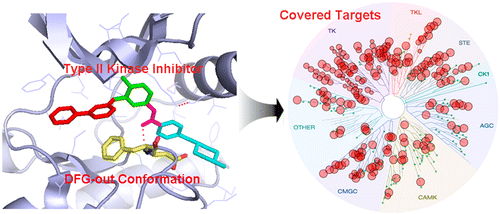After several years extensive study, an international collaboration team including a group lead by Dr. Qingsong Liu in HMFL and a group Lead by Dr. Nathanael Gray at Harvard Medical School have developed an new BTK kinase inhibitor QL47 as a potential drug candidate for cancers such as B-Cell lymphomas.
Bruton’s tyrosine kinase (BTK) is mainly expressed in B cells, which are widely distributed throughout lymphatic system, hemopoietic system, and bloods. Accumulated evidence has demonstrated that in many B-cell related diseases, especially B-cell non-Hodgkin’s lymphoma and Rheumatoid Inflammation, BTK kinase is abnormally expressed or activated. Recently there is a great interest of developing BTK kinase inhibitors against these diseases and these effort have led to several drug candidates in the clinical trials and one (Ibrutinib) get approved in the late 2013 for MCL and CLL.
By employing structure-based drug design strategy, the team has successfully developed a small molecule inhibitor against BTK, named as QL47. QL47 works by covalently modify BTK protein at Cysteine481 position to achieve a permanent inhibitory effect that finally results in target protein degradation, causing a more thorough inhibition on signaling transduction pathway. In a series of in vitro biochemical assays, this compound exhibits strong inhibition effects on BTK atuo-phosphorylation and downstream targets in B-cell lymphoma cells overexpressed BTK. In addition, it shows high specificity against BTK kinase among the over 520 kinases in the kinome. QL47 can effectively arrest cell cycle at the stage before DNA synthesis in cells, and showed potent growth inhibitory effects against a variety of B cell lymphoma cancer cell lines.
Currently, the oncogenic roles of BTK kinase are still under further investigation, the development of selective inhibitor QL47 provides indispensible tools for revealing the biological and oncogenic functions of BTK kinase in human cells.
This work recently was published online in the journal: ACS Chemical Biology, in which graduate students Hong Wu, Feiyang Liu and Dr. Wenchao Wang made major contributions in this work.

Predicted mode of binding of QL47 to BTK based upon molecular modeling
Publication link:
ACS Chemical Biology: pubs.acs.org/doi/abs/10.1021/cb4008524:
Discovery of a Potent, Covalent BTK Inhibitor for B-Cell Lymphoma